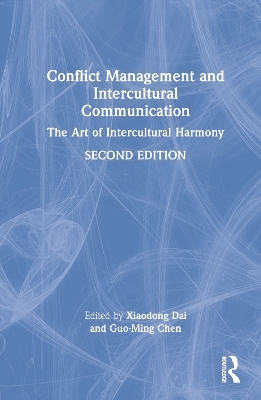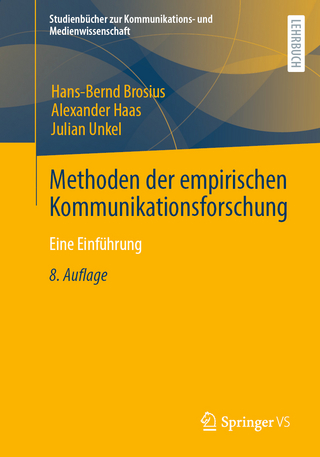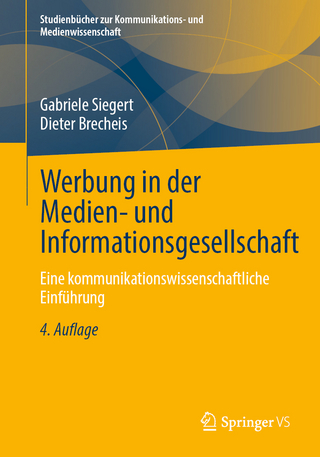
Conflict Management and Intercultural Communication
Routledge (Verlag)
978-1-032-18123-3 (ISBN)
Conflict management and harmony building are two key issues of intercultural communication research and merit particular attention in the globally interconnected world. In the expanded second edition, the book explores the effective ways to manage intercultural conflict and develop intercultural harmony, and takes an interdisciplinary approach to address the two issues.
The book begins with the theoretical perspectives on conflict management and harmony building. It examines intercultural communication ethics, diversity and inclusion, conflict resolution, conflict face negotiation, and intercultural competence. It presents both Western and non-Western perspectives. The book then addresses in its second section conflict management and harmony building in specific contexts. These include communication in intergenerational relationships, multinational corporations, and virtual spaces, and covers a range of national cultures including the USA, Japan, Germany, and China.
Drawing on the current research findings, this book covers the major theoretical perspectives and provides for a wide range of discussions on intercultural conflict management. It is a crucial reference for teachers, students, researchers, and practitioners alike.
Xiaodong Dai is Associate Professor of Foreign Languages College of Shanghai Normal University, P. R. China. He currently serves as the Vice President of the China Association for Intercultural Communication (CAFIC). Guo-Ming Chen is Emeritus Professor of Communication Studies at the University of Rhode Island, USA. He is the founding president of the Association for Chinese Communication Studies. He served as the Executive Director (2008–2014) and President of the International Association for Intercultural Communication Studies (2015–2017). Chen has published numerous books, articles, and book chapters.
Section One: Perspectives on Intercultural Conflict Management and Harmony Building 1. Moving from Conflict to Harmony: The Role of Dialogue in Bridging Differences 2. A Dialogic Approach to Intercultural Conflict Management and Harmonious Relationships: Dialogue, Ethics and Culture 3. Constituting Intercultural Harmony by Design Thinking: Conflict Management in, for, and about Diversity and Inclusion Work 4. The Development of Interculturality and the Management of Intercultural Conflict 5. Transforming Conflict through Communication and Commonground 6. Conflict Face-Negotiation Theory: Tracking Its Evolutionary Journey 7. The Art and Discipline of Nonviolence: An Intercultural Praxis Approach to Conflict in the Neoliberal Global Context 8. Multicultural Identity and Conflict Communication Competence in the 21st Century 9. De-Westernizing the Conflict Management Model: Is "Avoidance" Really that Bad? 10. The Yin and Yang of Conflict Management and Resolution: A Chinese Perspective 11. A Chinese Model of Constructive Conflict Management 12. Intercultural Competence and Harmonious Intercultural Relations: Interdisciplinary Perspectives and Insights Section Two: Intercultural Conflict Management and Harmony Building in Contexts 13. The Discursive Construction of Identities and Conflict Management Strategies in Parent-Child Conflict Narratives Written by Chinese University Students 14. No Intergenerational Conflict: Older Adults’ Reports of Communication Characteristics in American Family and Nonfamily Intergenerational Relationships 15. Intercultural Communication Management Professionals in the Japanese Linguistic and Cultural Environment 16. Conflicts in an International Business Context: A Theoretical Analysis of Interpersonal (Pseudo) Conflicts 17. Intercultural Conflicts in Transnational Mergers and Acquisitions: The Case of a Failed Deal 18. Leveraging Differences: Perceived Complementarity as a Synergy Potential in Sino-German Cooperation 19. Intercultural Challenges in Multinational Corporations 20. Understanding Intercultural Conflict in the Virtual Space: Characteristics, Approaches, and Management Styles
| Erscheinungsdatum | 27.10.2022 |
|---|---|
| Zusatzinfo | 14 Tables, black and white; 20 Line drawings, black and white; 20 Illustrations, black and white |
| Verlagsort | London |
| Sprache | englisch |
| Maße | 156 x 234 mm |
| Gewicht | 680 g |
| Themenwelt | Sozialwissenschaften ► Kommunikation / Medien ► Kommunikationswissenschaft |
| Sozialwissenschaften ► Politik / Verwaltung | |
| Wirtschaft ► Volkswirtschaftslehre | |
| ISBN-10 | 1-032-18123-0 / 1032181230 |
| ISBN-13 | 978-1-032-18123-3 / 9781032181233 |
| Zustand | Neuware |
| Informationen gemäß Produktsicherheitsverordnung (GPSR) | |
| Haben Sie eine Frage zum Produkt? |
aus dem Bereich


